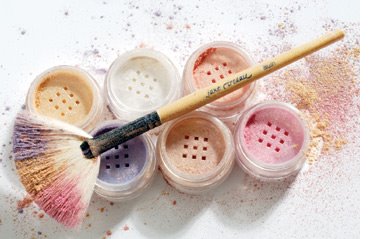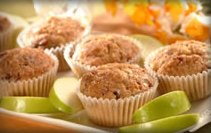 As our economic climate worsens, some experts predict minority owned business - including those owned by women - may take some of the worst hits. Here ares some tips on how you can survive.
As our economic climate worsens, some experts predict minority owned business - including those owned by women - may take some of the worst hits. Here ares some tips on how you can survive.
-by Colette Bouchez -
While most of you know that RedDressDiary is a blog concerned with mostly personal health and self care. So you might think that a post on economics has little to do with either one.
Truth is, the "health" of our economy - and your personal economic situation - has as much to do with the health of your body mind and spirit as anything else.
Which is why I want to tell you all about "Reality Check - The Irreverant Guide To Outsmarting, Outmanaging, and Outmarketing Your Competition " by Guy Kawasaki. It's a brand new book - just out today - and it's something every woman who's looking to survive these tough economic times has got to read.
Whether you are a business woman who's heading up the Fortune 500 ladder, or a stay-at-home Mom working in your PJs from your home computer, this is a book that will absolutely guide you through these terrible economic times and give you the oxygen you need to take a breath and hang on.
Among the valuable lessons you can learn: How To Raise Venture Capitol ( and who doesn't need some of that now!) ; How to Market Your Business ( even during a time when no one is buying anything); How to Sell ( when no one is buying anything!) and perhaps most important, how to adjust your business communication skills at a time when talk is cheap and action is everything.
You'll discover the most effective ways to blog, speak, schmooze, suck up- and when to suck down , and basically get a crash course in everything right you should be doing now to protect yourself, your money, your business, now and in the future.
My absolute favorite part: The Lessons on How To Do Good. At a time when we are all so tempted to swing to the evil side just to get by, Reality Check shows you how and why temptation may be your worst business enemy now ... and in the future.
All totaled it's a virtual survival manual for any woman looking to get through these tough times without so much as breaking a heel on her stilettos.
I don't often wax poetic or rave irrationally about a book - or even a jar of anti aging cream.
But when something works - it just works. And trust me on this one - Reality Check by Guy Kawasaki works.
Click here to learn more about the book ... you will be amazed. Really.
Thursday, October 30, 2008
Time for a Reality Check
Tuesday, October 28, 2008
Warning: Common Incontinence Treatment Found Risky - Plus Safer Alternatives
FDA warns about dangers linked to a common surgical procedure used to treat women with stress incontinence. Here’s what you need to know – plus a safer, alternative treatment option - by Colette Bouchez If you’re one of millions of women considering surgical treatment for urinary stress incontinence listen up: One of the most common surgical solutions is under fire from the FDA – and now the target of multi-state litigation – both citing the risk of serious injuries including the erosion of vaginal tissue, chronic pain, and more
If you’re one of millions of women considering surgical treatment for urinary stress incontinence listen up: One of the most common surgical solutions is under fire from the FDA – and now the target of multi-state litigation – both citing the risk of serious injuries including the erosion of vaginal tissue, chronic pain, and more
At the heart of the controversy: A type of synthetic mesh used in conjunction with a surgical procedure known as the “vaginal sling”. Here doctors use the mesh to reinforce a woman’s internal organs, lifting them in a way that reduces the risk of involuntary urine release during times of physical stress- such as sneezing, coughing or lifting a heavy object.
According to a recent statement published by the FDA, the agency has received over 1,000 medical complaints related to injuries suffered by women treated with the synthetic mesh, which is manufactured by nine different companies.
Injuries include not only vaginal issue erosion and chronic pain, but also infections, abscesses, bloody discharge, and impaired sexual functionality, with some of the women forced to undergo multiple surgeries to correct the problems created by the “mesh” surgery.
"Sling manufacturers represented this device to the FDA and physicians as effective and fit for use with patients. The FDA's recent alert supports what we have become fully aware of in the course of talking with numerous plaintiffs seriously injured by vaginal slings -- that there has been a great need for both physicians and patients to understand the symptoms and potential injuries from implantation of this type of device," explains Attorney Henry Garrard III of the Athens, Georgia law firm Blasingame, Burch, Garrard & Ashley, who currently represent the largest number of women harmed by vaginal sling injuries.
The Vaginal Sling Controversy: Who Is At Risk
Pelvic organ prolapse – the repositioning of key reproductive organs involved in bladder control - affects as many as 50% of women who have given birth one or more times, reports the National Association For Continence, (NAFC). More than half of women over age 55 complain of continence problems serious enough to warrant surgery.
Certainly not all who do have it encounter complications. But according to the FDA what increases risks is the specific type of mesh material used, the size and shape of that mesh, the surgical technique used to place the mesh inside a woman’s body and any additional procedures performed at the time – including a hysterectomy. Estrogen status at the time of surgery might also make a difference.
A Safer Alternative?
So far the FDA is just investigating the use of synthetic surgical mesh in this procedure but they have ssued a stern warning to both doctors and consumers about the potential for complications. It remains to be seen whether or not the mesh will be removed from the market.
But even if it is – or you want to try the surgery before any conclusions about safety are reached - there is another, some believe safer alternative to synthetic surgical mesh. It’s a biologically based material known as Sugisis Biodesign and it offers the same symptom relief – without the risk of associated problems.
According to Dr. William Porter, a uro-gynecologist at Presbyterian Hospital in Charlotte, North Carolina, the biologic materials actually work to communicate with the body thereby reducing the need for multiple surgeries and provide lasting relief for women.
Made from purified pig intestines studies also show that in doing so it also signals surrounding tissue to grow across the “sling”, thus giving the body the opportunity to repair itself.
According to the Cook Medical, who manufactures Surgisis Biodesign, over time, the graft also becomes part of the human tissue, thus allowing your own natural defense mechanisms to respond to any threat of infection – which is what appears to reduce the risk of complications.
In one recent study published in a Scandinavian journal of obstetrics and gynecology doctors form Danderyd Hospital, in Stockholm Sweden found that mesh made from porcine fibers was not associated with any adverse inflammatory responses, and appears to be a safe alternative. Similar findings were echoed in a thesis on prolapse repair published by the Karolinska Institute in Sweden.
Based on research led by Leslie Geddes, a Purdue University’s Showalter Distinguished Professor Emeritus of Bioengineering, the new biologic surgical graft material has, in fact, led to the development of an entirely new category of tissue repair and wound management options.
The Vaginal Sling Controversy: What To Do Right Now
If you have had a vaginal sling surgery and you’re feeling fine, relax. You’re probably among the many women who found success with the use of synthetic surgical mesh.
If, on the other hand, you are experiencing symptoms - including pain on intercourse, pelvic pain, recurring infection, or any sign of infection such as a bloody discharge, see your doctor immediately – do not wait. And follow the link below to report your symptoms to the FDA.
If you are considering having a vaginal sling procedure for complications related to pelvic organ prolapse, talk to a uro-gynecologist about whether or not a biological graft may be the right option for you.
To learn more about the new biodesign material, to read the FDA warning on synthetic surgical mesh, or to file a report about your experience with the mesh , try these links:
- Vaginal Sling: FDA Warning Letter
- FDA Information on Surgical Mesh Implants
- To Report Problems with Vaginal Sling Surgery Online
- To Download Mail-In Forms Reporting Vaginal Sling Surgery Complications
- To Learn More About Biological Implant Alternatives
And remember to visit RedDressDiary.com - The Destination for fabulous women over 40.
You might also enjoy reading:
Do THIS and Reduce Mammogram Pain
Stress Getting Under Your Skin? Here's What Can Help!
Tuesday, October 21, 2008
Study: Yogurt: Is The New - OId Wonder Food
It’s been touted for its probiotics benefits and the ability to improve digestive health. Now researchers say yogurt may also help reduce the risk of an important cancer. But there are a some warnings you also need to know.
By Colette Bouchez You can hardly turn on the TV without seeing Jamie Lee Curtis talking to an endless string of women about constipation – and if she’s right, how a certain yogurt might help ease the situation.
You can hardly turn on the TV without seeing Jamie Lee Curtis talking to an endless string of women about constipation – and if she’s right, how a certain yogurt might help ease the situation.
Well move over Jamie, there’s a new claim in town! If a group of Swedish researchers are right, yogurt may not only cure your constipation, it just might prevent you from getting bladder cancer to boot!
Indeed, researchers from Karolinska Institute in Stockholm, Sweden contend that eating just two servings of yogurt a day – and, those yummy yogurt drinks count as well – reduces the risk of bladder cancer by nearly half for some folks, when compared to those who eat little or no yogurt.
While doctors aren’t sure exactly how the yogurt offers protection, they don’t think it’s the much touted probiotics component responsible for helping digesting. Instead, they believe it’s the culturing aspect of producing yogurt – and the formation of lactic acid bacteria that occurs in the process – that matters most.
Writing in the latest edition of the American Journal of Clinical Nutrition researchers say "Cultured milk products, such as yogurt, contain lactic acid bacteria, which have been shown to suppress bladder cancer in rats. Our research suggests a high intake may reduce the risk."
More importantly, the new research was not conducted on rats, but on humans – more precisely some 82,000 men and women who were followed over the course of nine years.
The result: Women who ate 2 servings of yogurt a day saw a 45% reduction in bladder cancer while men garnered a 36% reduction.
Now if you’re thinking you’re likely to get at least some similar benefits from other dairy products, guess again. Researchers say since lactic acid bacteria is key to protection the only dairy sources are sour milk or yogurt.
“Total dairy intake was not significantly associated with risk of bladder cancer. However, a statistically significant inverse association was observed for the intake of cultured milk (sour milk and yogurt,)”, write the researchers.
Bladder Cancer On The Rise
The good news about yogurt comes at a great time since the American Cancer society now reports that bladder cancer is on the rise. They say that 2008 alone there will nearly 69,000 people diagnosed with this disease – and some 14,000 deaths will be attributed to bladder cancer.
According to ACS the major symptoms of bladder cancer include recurring blood in the urine, as well as increased urination, or feeling the need to urinate and not able to do so. It’s important to note, however, that these same symptoms are also present in many non-cancerous bladder conditions, including simple urinary infections.
Extra Benefits of Yogurt - & A Warning
If you’re looking to cut your risks even further, try dipping a few cruciferous veggies in your yogurt. In studies published earlier this year in the journal, Cancer Epidemiology Biomarkers & Prevention, researchers found that consuming raw vegetables such as broccoli can cut the risk of bladder cancer by up to 36%.
Of course I probably don’t have to remind you that, if you’re over 40, low fat yogurt is also a wonderful source of bone-building calcium, which may help reduce your risk of osteopenia (weak bones) and osteoporosis.
That said, you may not be aware that unless you are also getting an adequate supply of vitamin D – from the sun or from supplements - your bones may not utilize all, or even a significant portion of the calcium found in yogurt.
Unlike milk, which provides about 25% of your daily intake of vitamin D per serving, yogurt contains none. And since recent studies show that nearly all Americans are vitamin D deficient -particularly those who live in the north, have dark skin or are over the age of 60 - to get the full bone-building potential of yogurt, it’s important to talk to your doctor about whether or not vitamin D supplementation may be necessary.
Also be aware that yogurt can be fattening! So always choose the low fat or no- fat variety for the biggest nutritional bang for your buck. And if you can, skip the tooty-fruity-flavored varieties. They are so loaded with corn syrup and sugars, the associated health risks almost begin to outweigh the benefits of eating yogurt.
For some delicious recipes using yogurt, click here
You may also be interested in reading:
New Super Foods - Reduce Diabetes, Improve Memory & More!
Bon Appetit! Some Really Good Food News!
Or visit RedDressDiary - The Source For Fabulous Women Over 40!
Monday, October 20, 2008
Study: Menopause Increases Risk of Depression
Surprising new research suggests that both perimenopause and menopause can increase the risk of depression - even in women with no prior history of this condition. Here's what you need you need to know –
by Colette Bouchez There’s no question that the symptoms we experience during perimenopause, and for some of us even after menopause, are no day at the beach.
There’s no question that the symptoms we experience during perimenopause, and for some of us even after menopause, are no day at the beach.
From hot flashes and night sweats, to mood swings, forgetfulness, joint aches and pains - even fatigue - coping with symptoms of the “change” is enough to keep any woman in a bad mood for a decade or longer.
But now research shows your mood during this time of life may be more than just "menopause madness". One new observation study has found that women going through perimenopause and menopause have an increased risk of developing true clinical depression.
“ The majority of women do not develop depression during the menopause transition nonetheless, four community-based studies have documented that some women are at an increased risk” says Veronica Harsh, MD, lead author of the new research published in the latest issue of the journal Menopause Medicine.
The finding of the new study was basd on data taken from The Harvard Study of Moods and Cycles, The Penn Ovarian Aging Study, and The Study of Women’s Health Across the Nation (SWAN). Each was a community based study that found women who have major depression during midlife do not necessarily have a prior history of this condition.
Experts say these observations are definitely contrary to long held beliefs – and somewhat of a surprise.
“Many of us expected the latest observational studies to show that women with prior hormone-related depression would comprise the chief risk pool for perimenopausal and menopausal depression. Instead, observational studies suggest a complex picture [indicating] that many of the women who have major depression do not have a prior history,” says Nanette Santoro, MD, Director, Division of Reproductive Endocrinology & Infertility at the Albert Einstein College of Medicine Montefiore Medical Center in New York City, and editor of the journal where the new research was published.
That said, Harsh emphasizes that some past health and lifestyle histories still matter. Among the criteria the study found as increasing the risk for midlife depression include a longer duration of cycle irregularity, a past history of premenstrual depression ( PMD) or post partum depression (PPD), stressful life circumstances, a history of smoking, disturbed sleep, reduce fertility, and being without a partner.
Midlife Depression: Checking For The Signs.
While it’s one thing to say a woman may be at higher risk for depression during midlife, it’s quite another to weed out who is really affected. One reason is that so many of the symptoms overlap with those of menopause.
In fact, experts say that it can be all too easy for both doctors and women to write off how they feel as “menopause madness” – without even considering the possibility that something else may be going on.
In fact, Santoro writes that doctors need to look past the usual complaints women talk about in midlife, to see if indeed, there are other clinical issues that need attention. Women, ,meanwhile can also benefit by becoming aware of the signs of depression, and how to seperate them from what occurs naturally in the years leading up to menopause.
According to the new research, signs women need to watch for include:
· Feelings of sadness that last most of the day.
· Diminished interest or pleasure in activities you used to enjoy
· Significant weight loss or weight gain without changes in diet or exercise
· Insomnia- or sleep too much .
· Significant fatigue and loss of energy.
· Diminished ability to concentrate
· Feelings of worthlessness or inappropriate guilt.
· Recurrent thoughts of death or considering suicide as an alternative.
The Danger of Over Diagnosis
Certainly, if you are having any of these symptoms, it’s important to bring them to your doctor’s attention. And if your doctor agrees that your symptoms may be linked to depression, it’s important to consider treatment options – particularly since easing your depression may make the true symptoms of menopause seem less troublesome.
That’s said, my personal opinion is that too often women are victimized by what I call “anti depressant mania” – the over prescribing of anti-depressant medications in situations where they might not be necessary. Indeed, there are some doctors who right now are prescribing anti depressants as a way of coping with menopause symptoms – even when depression is not part of the clinical picture.
Clearly, there are some women who will benefit from these drugs. But it’s also important to remember that many will also benefit from changes in diet and an increase in physical activity – with studies to show that for some, these interventions will work as well or even better than drugs.
The point is, that first both you and your doctor should be aware that depression might be behind some of what you are feeling in your middle years. But more importantlly if this does turn out to be the case, then be sure to sure to discuss all your treatment options – which include not only anti depressant medication, diet, and exercise, but also talk therapy.
Because the truth is, sometimes just having someone to complain to about those hot flashes and night sweats, can make all the difference in the menopause world! :)
You might also be interested in reading:
Sex and The City And Menopause
The Hot Flash Solution
For more midlife health and beauty tips visit RedDressDiary.com - the destination for fabulous women over 40. For fabulous qwik and easy busy tips visit QwikStyleDiary.com
Friday, October 10, 2008
Study: Supplement That Curbs Carb/Sweet Tooth Naturally!
 Do you find it almost impossible to walk by a fast food restaurant without grabbing at least one bag of something greasy, yeasty or chocolaty-sweet? Do you crave it, even when there isn’t a Golden Arches or a Dunkin Donuts in sight?
Do you find it almost impossible to walk by a fast food restaurant without grabbing at least one bag of something greasy, yeasty or chocolaty-sweet? Do you crave it, even when there isn’t a Golden Arches or a Dunkin Donuts in sight?If so, there’s good news: Researchers reporting in the journal Diabetes Technology and Therapeutics say a daily dose of a specific nutrient could not only help women control cravings, but actually control appetite and get you to lose weight without even trying! Or, at least without feeling the pain.
What’s the magic nutrient? It’s called chromium picolinate and some are now suggesting it could fast become a dieter’s best friend.
“Participants receiving [chromium picolinate] reported decreased cravings for carbohydrates, fast foods, high-fat foods, and sweets over time,” said lead author Stephen Anton.
Moreover, says Anton, they also lost weight – and reported feeling less hungry between meals.
All this is particularly good news for middle-aged women, since the hormone shifts that occur beginning in your 40’s can impact your metabolism in a way that causes you to put on those extra pounds even if you’re not necessarily eating more calories.
If you’ve also battled a sweet/carb tooth all your life, there is some evidence that mid life shifts in reproductive hormones may increase those cravings – much the way they can for younger women in the premenstrual time of each cycle. And that can mean a greater desire for those foods that quickly put on the pounds.
Natural Appetite Control: How They Did It
The new study involved 42 overweight women, with an average BMI of 31, and a self-confessed “craving” for carbohydrates. The women were randomly assigned to receive a daily chromium picolinate supplement or a placebo for a period of 8 weeks – and were told to eat as they normally would.
The doctors measured the women’s daily food intake at the start of the study, after one week and again after 8 weeks.
The result: At the end of the 8-week study period the women taking the chromium picolinate supplement reduced their food intake by 25%, compared to just 8 % in the placebo group. Moreover, the women taking the supplement lost a .5 kg of weight, while the placebo group gained .5kg of weight.
Perhaps most important, the women in the chromium group reported fewer cravings for carbs, sweets and high fat foods - and said it was simply easier to eat less.
“To our knowledge, this is the first study to examine whether chromium picolinate affects food intake in humans,” says Anton.
Chromium is an essential trace mineral that occurs naturally in foods like brewers yeast, lean meats, cheese, and whole grain breads and cereals. While it is known to play a key role in the metabolism of carbs, fats and protein, the human body does not absorb this mineral well. And that means we often don’t get the benefits of even chromium-rich foods.
Chromium picolinate is a specific form of this mineral that previous studies have shown is better tolerate and absorbed by humans. Currently it is only available in supplement form.
The researchers, which hailed from Pennington Biomedical Research Center at Louisiana State University, and the University of Florida, suggest that if their findings are validated by other studies, chromium picolinate may become an important weight loss tool and a way to control appetite naturally.
In studies published elsewhere researchers from the University of Cincinnati found that supplements of chromium picolinate also helped increase brain activity and improve memory. In a second study presented at the American Diabetes Association's 68th Annual Scientific Session earlier this year researchers suggested chromium supplements may decrease inflammation associated with diabetes and reduce the risk of heart disease.
To learn more about the study, including the exact type of supplements used and the specific dosages, click here.
You may also be interested in reading:
Women & Exercise: Slow Down!
Visit: RedDressDiary.com - The Healthy and Beauty Source For Women Over 40!
Tuesday, October 7, 2008
Study: To Control Weight- Diabetes Play By The Rules
New research shows that controlling weight and blood sugar may require nothing more than learning how to play by the rules . Here's what you need to know. By Colette Bouchez
Let’s face it …doctors are generally not the most engaging conversationalists. At least not when they’re behind that desk droning on and on about how you need to eat more broccoli, fewer donuts, do more push ups, watch less TV, an in general do and eat more of what you hate and less of what you love.
Which is one reason why so many people report they “zone out” when talking to their doctor – and don’t really take to heart, or even remember, much of what is said.
That, combined with the fact that most of us don’t really believe that one more custard filled donut or one more tub of fried chicken is really going to kill us, means many of us walk away from that doctor’s appointment barely changing a thing about our daily lives.
The end result: Our weight continues to climb, our blood sugars rage out of control, and our risk for even greater health problems – like heart disease and even cancer – continues to rise.
So what’s the answer? Well one new study shows it could be as simple as learning to play by the rules.
In short, actually pay attention to not only your doctor - but the organizations she is basing her recommendations on, like the American Heart Association and the American Diabetes Association. Indeed, as simple as it sounds, a new study shows that doing so can make a huge difference in not only controlling your weight and your blood sugar, but maybe even saving your life.
Playing By The Rules
The new research was conducted at North Carolina’s Structure House, the nation’s only in-patient facility for the treatment of obesity and diabetes. In this instance, some 70 patients, all of whom were overweight and on medication for type II diabetes, signed on for a 4 week residency program that is, well, a lot like having your doctor as a roommate 24/7.
More specifically, the 70 men and women spent the 4 weeks immersed in learning about – and practicing - good nutrition, daily exercise, and discovering how to deal with the impact of stress and emotion on blood sugar and weight. They also saw diabetes educators, nurses, and doctors for daily and weekly visits to help follow their progress and reinforce what they learned - and put into practice.
The end result: All 70 patients came away with significant improvements in their health – in just four weeks.
“On average, individuals lost nearly 16 pounds and reduced their blood glucose level by 11% and their hemoglobin A1c level from 7.5% down to 6.9%, below the American Diabetes Association’s recommended level,” said lead researcher Dr. Anna Stout.
Some of the patients, says Stout were even able to get off their type II diabetes medications, or reduce the amount they were taking. Indeed, 41 % of the individuals eliminated at least one diabetes medication and 29% reduced the dosage of one or more drugs. And remember, this didn't take a year, or even six months. It took just 4 weeks.
Experts say there is also no question that if the patients stay on track, they will continue to reduce their risks of other health concerns as well, including heart disease and even cancer.
The Take Home Message
While no one is saying that accomplishing any of this is easy - or even fun. But what matters is that it's tolerable and doable. Even without that pricey stay in a in-patient facility.
Where do you begin?
The next time your doctor hands over that sheet of paper with the foods you should and should not eat – pay attention, and change your diet. Ditto when she tells you to get more sleep, exercise 20 minutes a day, and take some serous steps to reduce stress in your life, or at least your reaction to that stress.
In short, live and play by the good health golden “rules” – and you too just might see a remarkable change in your health, and in your future - before your next hair-tearing mortgage payment is due. And you won’t have to bunk in with your doctor to do it!
You might also enjoy reading:
New Study: Weight Gain Shocker
Study: For Weight Loss Good Timing Means Everything
or vist RedDressDiary.com : The Destination for Health & Beauty for Women Over 40!



































